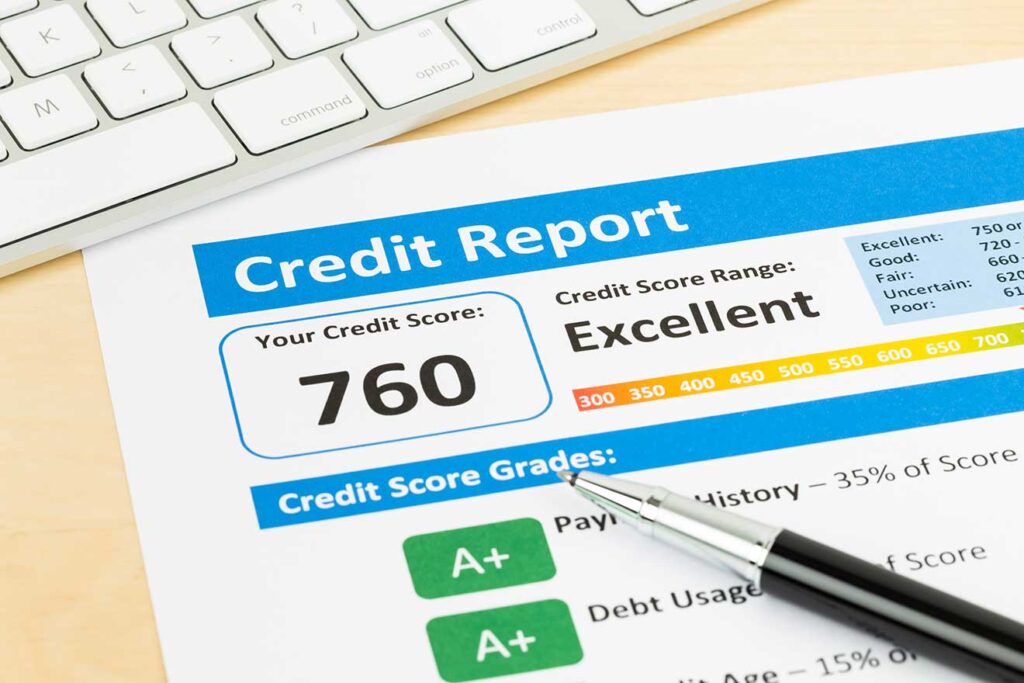According to a British Chambers of Commerce survey published earlier this year, around half (49%) of businesses who accessed finance felt that getting funding had become more challenging over the past three years.
Poor credit scores will throw a further wrench in the works by reducing lender confidence and imposing sky-high interest rates.
Yet, numerous studies show that external debt positively impacts SME growth, making up for the insufficiency of internally generated funds. And most debt financing goes towards growth-related activities: a Forbes Advisor survey found that 42.4% of business owners used loan funds for business expansion, while 29.4% used them for equipment purchases.
How, then, can businesses improve their standing with credit agencies?
The lowdown
Similar to individuals, businesses are assigned credit scores that impact their ability to secure loans and the interest rates they receive.
Business credit scores typically fall within a range of zero to 100, with 100 being the highest possible score.
Multiple agencies monitor and assign business credit scores, with Dun & Bradstreet and Experian being two of the most prominent.
Experian says that a business credit score above 80 is “typically considered excellent”.
According to Experian, the average business credit score in the UK hovers around 44.
Building your business credit score
Separate your business and personal finances
If you’re a new start-up or microbusiness, focus on using business finance instead of personal credit or guarantees. This helps build your business credit score and gives a clear picture of your financial health.
Plus, it keeps your personal and business finances separate – which is important because a poor personal credit score can negatively impact your business’s ability to obtain credit.
A good first step? Open a business bank account and apply for a business credit card to build a strong payment and credit history.
Pay your bills on time
Payment history is the most important determinant of your credit score, so make sure you stay on top of your cash flow and pay your bills on time. It’ll boost your payment performance and help you avoid late fees or even legal action, like county court judgements (CCJs) or insolvency.
Plus, paying on time builds trust with the businesses you work with. You can even ask your suppliers or partners to report your payments to credit reference agencies to help build a strong payment history.
Keep your credit utilisation low
Credit utilisation is the second most important determinant of your credit score.
Credit utilisation represents the percentage of your credit card balance compared to your limit—essentially showing how much credit you’ve used versus what’s still available. For example, if you have a new business credit card with a credit limit of £10,000 and you spend £5000 with it, your credit utilisation ratio will be 50%
Keeping this ratio low is key to building and maintaining a solid business credit score.
Don’t tinker with your credit
The length of your credit history also makes up a percentage of your credit score, so keep old accounts with a solid payment history open.
Indeed, a common misconception is that closing unused credit accounts will improve your score, while in reality, this can negatively impact your score by reducing available credit and shortening your credit history.
File full accounts with HMRC
Experian also advises companies to file full accounts with HMRC and Companies House—on time and following the guidelines—rather than using abridged, filleted, or micro-entity accounts. This gives lenders a clearer picture of your business’s financial health.
The key takeaway?
Building a strong credit score is vital to your business’ long-term viability. Yes, in the short term, a poor credit score can make it difficult to access credit or negotiate favourable terms with suppliers. But in the long term, it can also hinder growth, damage the company’s reputation, and strain relationships with partners or suppliers.

